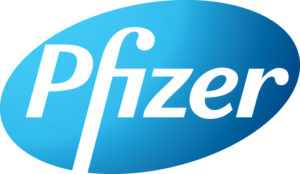Pfizer Raises Awareness On World Arthritis Day To Support Patients Across Africa And The Middle East
To help improve the lives of rheumatoid arthritis patients across Africa and the Middle East region and to mark the World Arthritis Day (WAD), a global awareness-raising day conceived by The European League Against Rheumatism (EULAR), Pfizer held several initiatives recently. The initiatives included ‘Digital Inspire 2020’, a forum held annually that this year brought together 14 renowned rheumatologists from around the globe. Over 1000 participants from 38 countries attended this year’s conference in a digital setting. It explored latest advances and treatments to support patients living with rheumatoid arthritis, a chronic inflammatory disorder.
Yasser El Dershaby, Vice President of Pfizer and Medical Affairs Lead for Africa and Middle East Region, commented: “Rheumatoid arthritis remains to be one of the most common rheumatic and musculoskeletal disease (RMDs) in the region. The condition causes significant joint inflammation and pain impacting daily and occupational activities for patients; however, there is hope, and we aim to continue raising awareness around the treatments available today. This year, we brought together 14 renowned expert rheumatologists worldwide and welcomed 1000 participants for our annual Inspire forum. The meeting was successfully hosted in a 360* interactive digital setting and focussed on current and clinically relevant presentations of rheumatic diseases. We explored the latest advances in treatment and management. and the educational event provided participants with critical tools and up-to-date knowledge to apply in their daily clinical practice.”
Dr. ShaimaEwila, Consultant of Rheumatology Committee in National Health Insurance Sector, Egypt, said: “Inflammation is a critical response to potential danger signals in the body. With autoimmune diseases such as rheumatoid arthritis, the immune system attacks its tissues. Rheumatoid arthritis is a painful and debilitating condition that takes an immense toll on patients’ quality of life. Patients need not settle for ‘good enough’ citing genetic or age-related reasons instead of seeking newer advanced treatments. There is most definitely help to manage the disease.”
Dr. Mohammed Ali Al Mansour, Head Section of Rheumatology/Consultant Subspecialty, King Fahad Medical City, Saudi Arabia, said: “We support and send out the message of ‘Don’t Delay, Connect Today’ to patients and their families to cite the importance of early diagnosis along with the significance of early referrals by general practitioners and nurses in supporting patients. Patients must visit a specialist Rheumatologist and seek treatment as early as possible to manage the condition. This will have the best remission chance.”
Dr. Yaser Mustafa Ali, Rheumatology Consultant at Mubarak Al-Kabeer Hospital, Kuwait, said: “For patients having rheumatoid arthritis, morning stiffness that lasts more than an hour typically suggests an inflammatory etiology. Patients may also show signs of chronic fatigue, weight loss, as well as anemia. However, the availability of new medications is proving successful in managing the disease. We see the availability of oral medications also proving to improve patient adherence.”
Dr. Basel Masri, President of the Arab League of Associations for Rheumatology (ArLAR) and Senior Consultant Rheumatologist at Jordan Hospital and Medical Center, Jordan, said: “Forums such as Inspire are crucial in raising awareness around the advances and in exchanging best practices for the benefit of patients. The disease burden can be lessened by working closely together with the relevant patient groups in the communities. There is hope for patients and their families who may find it challenging to manage these chronic diseases. Significant advances in the treatment of rheumatic diseases, such as rheumatoid arthritis, psoriatic arthritis, and ankylosing spondylitis, are resulting in better patient outcomes.”
The disease causes an increase in mortality and costs of care. Patients are typically diagnosed between the age of 30 and 50. Both genetic and environmental factors affect the risk of developing the disease. Women, smokers, and those with a family history of the disease are at a higher risk.
Rheumatoid arthritis patients should be screened for chronic infections, including latent tuberculosis, hepatitis B virus, and hepatitis C virus, before starting a treatment regimen.








 Email: info@cyber-gear.com
Email: info@cyber-gear.com